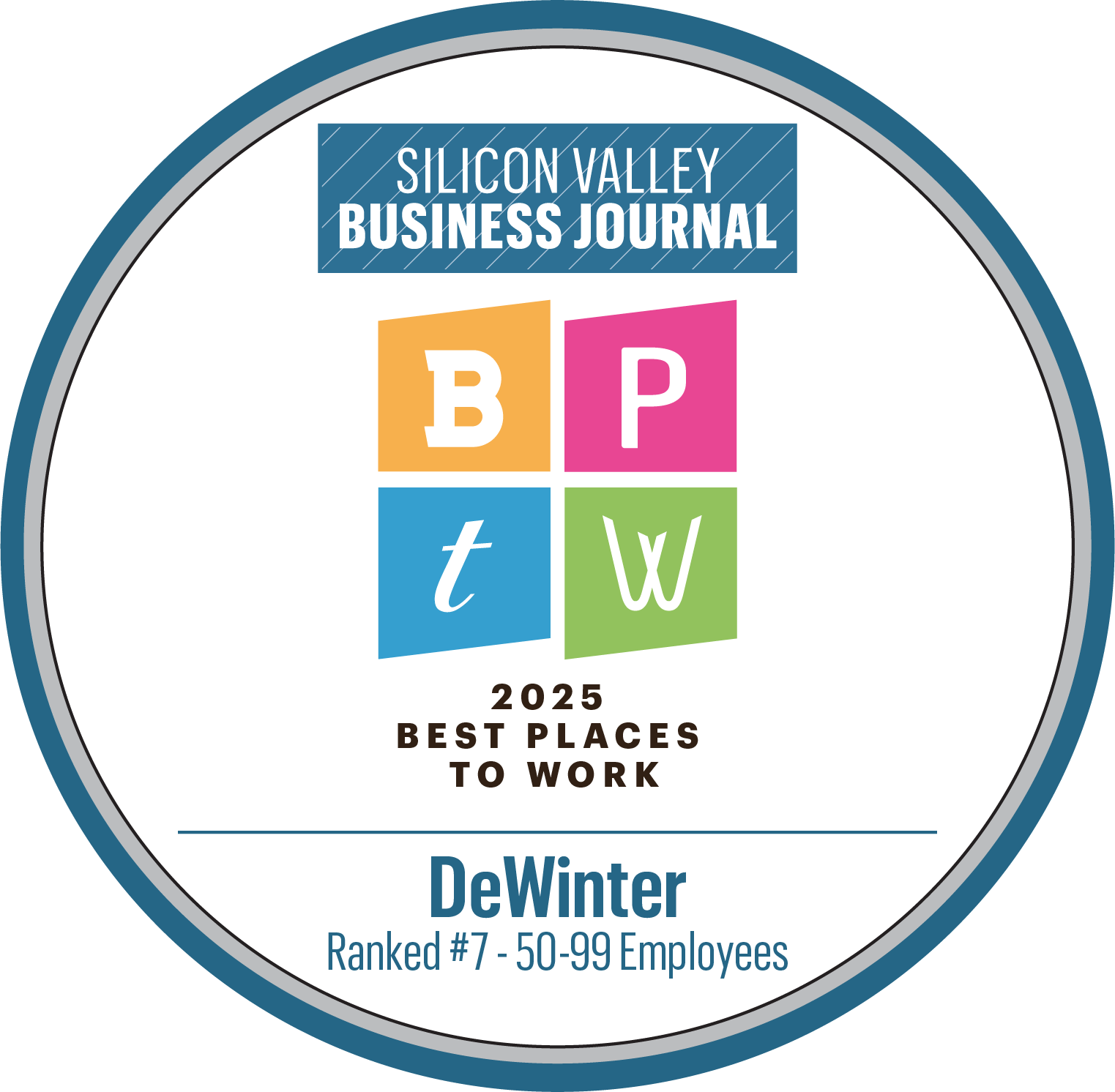Beat Year-End Burnout: The Power of Strategic Finance and Accounting Temporary Staffing
The last quarter of the year is a sprint for every business, but for finance and accounting teams, it often feels like an uphill marathon. As the calendar inches toward January 1st, the pressure to finalize the books, prepare for audits, and solidify the next year's budget creates a perfect storm of long hours, high stress, and—critically—resource shortages.
Far too many organizations approach year-end staffing with a reactive, "all hands on deck" mentality. This leads to burnout, costly errors, and compromises in quality that can ripple into the new fiscal year. The solution isn't simply adding more work to already strained permanent staff; it's about proactively and strategically deploying specialized temporary support.
As a leading finance and accounting staffing firm for the Northeast, we see this cycle play out annually. This guide will explore the common stresses and projects that drive this year-end crisis and detail how targeted, strategic temporary staffing can be the most effective, efficient, and compliant solution to ensure a smooth and successful close.
The Perfect Storm: Common Year-End Stresses and Projects
The year-end close is more than just balancing accounts; it’s a complex period layered with crucial, time-sensitive projects that demand specialized expertise. When these projects pile up, even the most robust in-house teams can become overwhelmed.
1. The Financial Close and Reporting Crunch
The core stressor is the annual financial close. This is a monumental task involving the reconciliation of every ledger, subsidiary system, and account. Common pain points include:
- Complex Reconciliations: EY’s “Smart Closing” survey identifies intercompany reconciliation (a critical part of consolidated adjusting entries) as “the most time-consuming” year-end activity, especially when data lives in disparate systems. Dealing with intercompany transactions, accrued liabilities, and challenging balance sheet accounts often requires dedicated, focused attention that regular staff can’t spare.
- Tighter Reporting Deadlines: Publicly traded companies, in particular, face increasingly compressed timelines for filing 10-K reports. Even private firms need results quickly for executive review and strategic planning.
- Year-End Adjusting Entries: Processing complex entries for depreciation, amortization, and inventory valuation requires precision and a deep understanding of GAAP or IFRS principles.
2. The Dreaded External Audit Preparation
The preparation for the external audit is perhaps the most resource-intensive task. It requires pulling thousands of documents, preparing support schedules, and acting as a liaison with the auditors.
- PBC (Prepared By Client) List: The sheer volume of documents on the PBC list often consumes weeks of a senior accountant’s time, pulling them away from core business operations.
- Documentation and SOX Compliance: Ensuring all financial processes and controls are properly documented and meet compliance standards is non-negotiable, often requiring specialized internal audit support.
- Navigating New Standards: Accountants must keep up with evolving standards from the Financial Accounting Standards Board, such as complex revenue recognition standards or lease accounting. Implementing and documenting the impact of these changes adds a significant load.
3. Budgeting, Forecasting, and Strategic Planning
While closing the books is retrospective, year-end is also the time for prospective planning. The Finance team is responsible for preparing the annual budget and multi-year financial forecasts.
Data Aggregation and Analysis: This requires gathering data from every department, modeling multiple scenarios, and performing intricate financial analysis—a task often best handled by dedicated Financial Planning & Analysis (FP&A) specialists.- Technology & System Upgrades: Many organizations schedule system implementations or major software upgrades (like ERP migrations) during quieter periods, but if these projects spill into Q4, they can compound the existing year-end workload stress.
According to a survey by CFO.com, 92% of the finance professionals reported that budget constraints have affected their ability to meet strategic goals.
4. Staff Turnover and Burnout
Underlying all these projects is the critical human factor: burnout. The relentless pressure and long hours can lead to:
- Increased Errors: Fatigue directly correlates with a decrease in accuracy, jeopardizing the integrity of the close.
- Elevated Turnover Risk: High-performing employees often use the successful completion of the year-end as a natural exit point, leading to a talent exodus right when continuity is needed most. This is compounded by the fact that nearly half of accountants cite burnout/heavy workload as a top reason for leaving their jobs, according to ICPAS. Proactive staffing can mitigate this by relieving the pressure on key staff
The Strategic Solution: Deploying Temporary Experts
Attempting to solve the crisis by simply having permanent employees work more is a short-sighted approach. The most effective strategy is the proactive, surgical deployment of temporary professionals. This is not "extra help"; it is an injection of high-impact expertise precisely where and when it’s needed.
1. Targeted Expertise for Specialized Roles
Strategic temporary staffing allows you to bring in individuals who already possess the exact skills required for the task at hand, eliminating the need for extensive training. By filling these specific gaps, you prevent the permanent core staff—your Controllers, Directors, and VPs—from being pulled away from their strategic leadership and managerial duties.
| Year-End Pain Point | Strategic Temporary Solution |
|---|---|
| Audit Preparation & PBC Support | Senior Accountants / CPAs: Vetted professionals who understand audit standards and can prepare clean schedules and liaise with external auditors. |
| Complex Reporting & Analysis | FP&A Analysts: Experts in budgeting, forecasting models, and complex data visualization to structure next year's plan. |
| Transactional Volume | Accounts Payable/Receivable Specialists: Focused administrative support to clear backlogs, manage vendor payments, and handle invoice volume surge. |
| SOX/Internal Controls | Internal Audit Consultants: Specialists who can review controls documentation and perform testing to ensure compliance readiness ahead of the audit. |
2. Immediate Relief Without Permanent Overhead
Hiring a permanent employee is a significant long-term commitment involving recruitment costs, benefits, training, and a fixed salary regardless of workload fluctuations. Strategic temporary staffing offers maximum flexibility:
- Scalability: You can scale up for the intense 3-4 month period of the close and audit, and then seamlessly scale back down without the burden of layoffs or idle staff.
- Cost Efficiency: You only pay for the specialized expertise and hours required to complete the mission-critical task. This allows firms to manage peak workloads without inflating the annual payroll budget .
- De-Risking the Close: Bringing in an experienced professional who has navigated dozens of year-end closes before introducing a level of experience-based stability and process optimization that can save significant time and prevent costly mistakes.
3. Best Practices for Identifying Needs and Sourcing Talent
The success of a temporary staffing solution hinges on planning and partner selection. Follow these best practices to move from reactive crisis management to proactive strategic deployment:
A. The Three-Month Look-Ahead Assessment:
Start by reviewing your Q4 and Q1 projects now. Ask your department heads:
- What non-negotiable projects are high-stress/high-volume? (e.g., Inventory counts, Fixed Asset schedule prep).
- Which permanent team members will these projects pull away from their core responsibilities?
- What is the minimum required skill set needed to complete the task? (e.g., SAP experience required).
B. Leverage a Specialized Recruiting Partner:
For finance and accounting staffing, a generalist recruiter won't cut it. You need a partner with deep roots in the Northeast market and an existing network of vetted, available professionals.
- Access to Pre-Vetted Talent: A specialized firm maintains a bench of professionals who are immediately available, background-checked, and skills-tested specifically for accounting and finance tasks. This drastically cuts down on your time-to-fill metric.
- Market Knowledge: A local partner, like our North East F&A Consulting team, understands regional compensation trends and the unique skill demands of Boston, New York, and other major Northeast business hubs, ensuring you secure top talent at a competitive rate.
- "Culture Fit" Screening: A good partner screens not just for technical skills but for professionals who are adept at quickly integrating into a team, understanding existing systems, and maintaining a high level of professionalism under pressure—a non-negotiable trait for successful year-end deployment.
Securing a Smooth Transition into the New Year
The year-end close is a defining moment for any Finance and Accounting department. It tests resilience, efficiency, and preparedness. By recognizing the limitations of relying solely on permanent staff and embracing a strategy of proactive temporary staffing, Northeast organizations can transform this period of maximum stress into an exercise in operational excellence.
Don't wait for your team to be on the brink of burnout. By strategically bringing in high-impact, specialized temporary talent, you not only manage the immediate crisis but also preserve the health, morale, and focus of your permanent team, setting the stage for a strong, compliant, and profitable start to the new year.
Ready to secure the talent you need before the year-end crunch begins? Contact our Boston-based team today to start a conversation about your team’s end-of-year needs.















